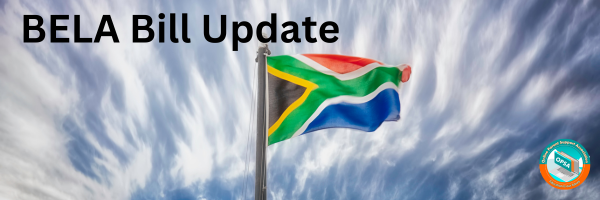The BELA Bill Update: Where Are We Now?

The journey of the Basic Education Laws Amendment (BELA) Bill has been long and filled with much public discourse, reflecting its significant implications for education in South Africa. As it stands, the BELA Bill is approaching its final stages, having been recently adopted by the Select Committee on Education and Technology, Sports, Arts and Culture in the National Council of Provinces (NCOP). Here’s a detailed look at where things currently stand with the BELA Bill, what changes have been made, and what this means for the future of education, particularly concerning home schooling and parental choices.
Current Status of the BELA Bill as on 2 May 2024
The final version of the BELA Bill was adopted by the NCOP on May 2, without any debate, despite substantial public input including numerous letters and over 1,500 emails from concerned parties such as the Pestalozzi Trust. The provinces have voted, with only the Western Cape rejecting the bill. The NCOP's approval process was largely a formality, paving the way for the bill to proceed to the floor of the National Council for one last vote, which is expected to occur shortly.
Key Amendments and Their Implications
Interestingly, despite numerous rounds of public consultation and feedback, the final amendments made to the BELA Bill do not directly impact home schooling. One notable change is the alteration in penalties related to education laws, now leaving the severity of penalties to the discretion of the courts. This could mean a more balanced approach to handling infractions under the new legal framework.
For the broader educational landscape, especially public schools, the implications might be more pronounced. There is concern that the adjustments could potentially place additional strain on public schooling systems, possibly exacerbating existing challenges and affecting the quality of education.
What This Means for OPSA Members
For members of the Online Parent Support Association (OPSA), the impact of the BELA Bill is relatively minimal but positive. OPSA members, who are already compliant with the Curriculum and Assessment Policy Statements (CAPS), will primarily need to ensure that they register their homeschooling setup with the Department of Basic Education (DBE) within 30 days after the bill is signed into law. A positive takeaway is the provision that if the DBE does not respond within 60 days, the registration will automatically be deemed approved.
Looking Ahead
As the BELA Bill moves towards its final enactment, it's vital for all stakeholders, particularly those involved in home schooling, to stay informed and prepared for the changes that will come into effect. For OPSA members, the association remains a steadfast resource, ready to assist with navigating the new regulations and continuing to advocate for high-quality, flexible education options.
The forthcoming steps involve the bill's discussion in the National Assembly's Portfolio Committee on Basic Education, after which it will return to the assembly floor for a final round of discussions. Given the current trajectory, there’s little expectation of opposition within the assembly, suggesting that the bill’s passage into law is imminent.
Conclusion
While the BELA Bill might not drastically change the operational aspects of home schooling for OPSA members, its broader implications could reshape the educational landscape in South Africa. As such, staying proactive, informed, and engaged with the legislative process is crucial for all educators and parents. OPSA is committed to providing updates and guidance throughout this process, ensuring that all members can continue to provide excellent educational opportunities for their children.
This blog post aims to keep the community informed about the BELA Bill's progress and to reassure members of OPSA about the ongoing support and minimal impact expected. As we move forward, our collective focus remains on enhancing educational practices and advocating for the needs of all learners.